A high-level meeting was held on Friday at the residence of Union Home Minister Amit Shah regarding the suspension of the Indus Waters Treaty. The 45-minute meeting between the Home Minister and Union Jal Shakti Minister C.R. Patil focused on exploring ways to halt the flow of water to Pakistan.
According to sources, the discussion centred around three key options — short-term, mid-term, and long-term measures. The government's intent was clear: not even a single drop of water should be allowed to reach Pakistan.
Following the meeting, it was decided that all possible measures to block the water flow would be implemented immediately. Officials were instructed to take prompt action on this front.
Earlier, Debashree Mukherjee, Secretary of the Ministry of Jal Shakti, had on Thursday written a formal letter to Syed Ali Murtaza, Secretary of Pakistan's Ministry of Water Resources. In the letter, she officially informed Pakistan about India's decision to suspend the Indus Waters Treaty with immediate effect.
The letter referred to previous notices sent by the Indian government under Article 12(3) of the 1960 Indus Waters Treaty, calling for a renegotiation of the treaty in light of changing circumstances. These included massive population growth, the urgent need for clean energy development, and shifts in the foundational assumptions behind water sharing.
India emphasised that a re-evaluation of obligations under various articles and agreements of the treaty was now essential. The letter also accused Pakistan of repeatedly violating the treaty.
India stated that Pakistan has consistently supported cross-border terrorism in Jammu and Kashmir, creating security uncertainties that have obstructed India’s ability to fully exercise its rights under the treaty. Pakistan has failed to respond to India’s repeated requests to initiate dialogue under the treaty framework — a clear violation of its provisions.
Mukherjee clarified that the decision to suspend the treaty was taken after deep consideration by the Indian government. As a result, the Indus Waters Treaty of 1960 will remain suspended with immediate effect.
Notably, the Indus Waters Treaty was brokered in 1960 between India and Pakistan with the mediation of the World Bank. Under the treaty, India retained rights to the eastern rivers, while Pakistan received the flow of the western rivers.

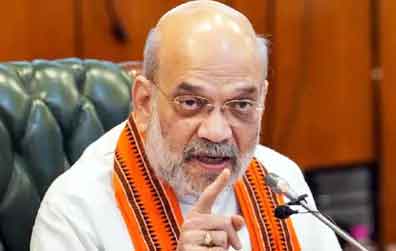
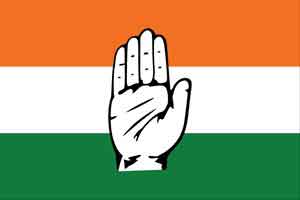
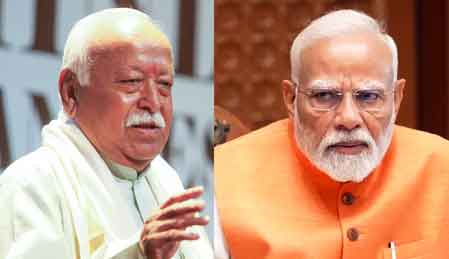
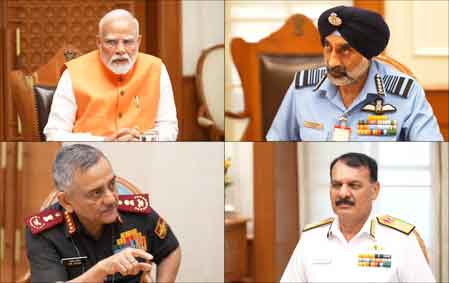
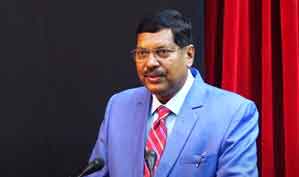


‘Pahalgam incident deeply disturbing & tragic’: Former Pakistan PM Imran Khan
Former Pakistan Prime Minister Imran Khan on Tuesday termed the Pahalgam terror attack as disturbing & tragic and also condoled the victims and their families.
Congress finally deletes 'Gayab' post targeting PM Modi after outrage
Under fire from the BJP over its social media post targeting Prime Minister Narendra Modi, Congress finally, on Tuesday, took down the controversial post.
Guterres calls EAM Jaishankar, Pak PM Sharif; stresses pursuing justice in Pahalgam terror attack
Secretary-General Antonio Guterres stressed the importance of pursuing justice in the Pahalgam terrorist attack while speaking with External Affairs Minister (EAM) S Jaishankar and Pakistan’s Prime Minister Muhammad Shebaz Sharif, his Spokesperson Stephane Dujarric said on Tuesday.
Congress organises ‘Save Constitution’ rallies across NE states
The opposition Congress has been organising ‘Samvidhan Bachao’ (Save Constitution) campaign in the northeastern states. Claiming that the Constitution is in danger under the BJP-led Central government, the opposition Congress held a massive rally in Agartala on Tuesday.
RSS chief Bhagwat meets PM Modi after security huddle: Signs of a hard-hitting response in the works
In a significant political development, RSS chief Mohan Bhagwat met Prime Minister Narendra Modi at his official residence at 7, Lok Kalyan Marg on Tuesday evening.
What PM Modi's free hand to armed forces against terror means for cross-border action?
Prime Minister Narendra Modi’s unambiguous message during a high-level security meeting - ‘India is determined to deliver a crushing blow to terrorism’ - marks more than just a strong statement of resolve.
Justice BR Gavai appointed as next Chief Justice of India
Justice Gavai was elevated as a Judge of the Supreme Court on May 29, 2019. Appointed as Additional Judge of the Bombay High Court in November 2003, he became a permanent Judge in November 2005.
Three more Bangladeshi nationals held in Tripura
The Tripura Frontier of the Border Security Force (BSF) on Tuesday apprehended three Bangladeshi nationals, including a woman, for illegally entering India, officials said.